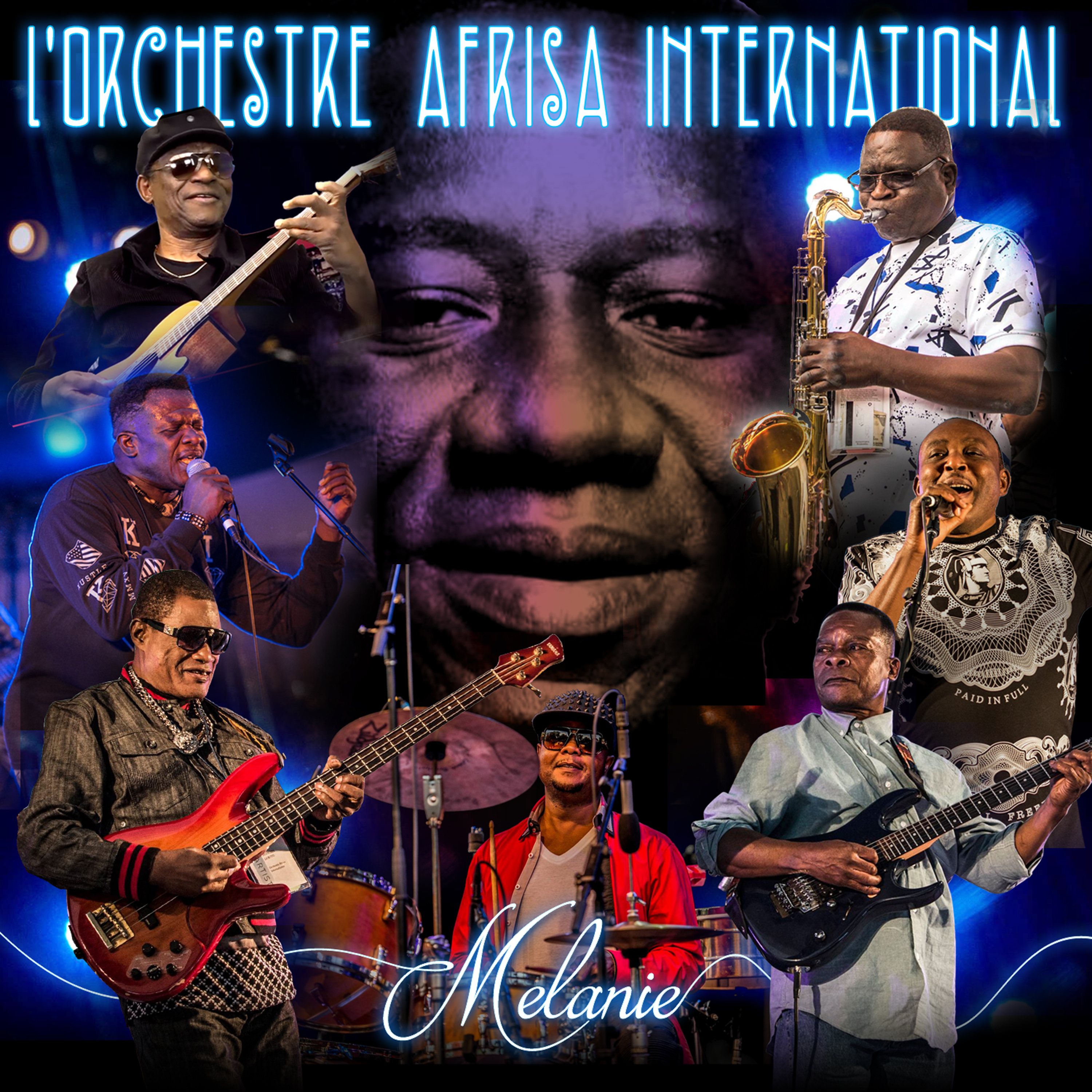As the great Congolese composer/singer/bandleader Tabu Ley Rochereau approached his final days in 2012, he summoned the musical director of his band, L’Orchestre Afrisa International, from America to his bedside and made a last request. Modero Mekanisi had played saxophone at Tabu Ley’s side since 1974. Now he had one more assignment: to keep the band and the music going, despite the leader’s passing. It has taken this long for Afrisa to honor that wish with a finished recording, the band’s first since 1996, but man, was it worth the wait.
For fans of classic Congolese big-band dance music, this is as fine a release as we’ve heard in many years. It appeals to old-school tastes, with no programmed drums and minimal use of keyboards. Also absent is the chanting “animation” passages, wherein names of patrons (or would-be patrons) are shouted out in an odd blend of crowd-pumping and commercial advertising—good fun in appropriate doses, but hardly missed here. Melanie is all about musicianship: groove, guitars—ooooh what guitars!—brass, and lusciously layered, impeccably arranged vocals.
First, about those guitars, most of these 11 tracks feature three electric guitar parts: rhythm and mi-solo panned left and right, and lead right up the middle. Those guitar parts are all played two Afrisa veterans, Dino Vangu in Paris and "Huit Kilos" Nseka in Los Angeles. Dino plays lead on the first six tracks and Huit Kilos on the remaining five. Two tracks—“Mela,” a love song to one of Tabu Ley’s wives, and “Ma Fille,” a song for Tabu Ley’s daughter—appear in both Paris and Tacoma versions. (Modero and star vocalist Wawali Bonane live in Tacoma, Washington, and those last five tracks were mostly recorded there.) It is fascinating to compare the two lead guitarists’ styles. Dino’s sound is fat and chunky with lots of double-stops; Huit Kilos’ is sharp and stinging with piercing single-note precision and clarity. Listeners may have their preference, but both are sterling examples of one of the world’s most blissfully melodious and seductive guitar styles.
Wawali is the dominant lead vocalist, though Dodo Munoko, Djeffard Lukombo and Habiba Batantu take the spotlight at times, and provide robust choral backing throughout. But Wawali’s voice is truly a marvel, full-throated and gentle but easily capable of reaching those high, horn-like tenor notes that Tabu Ley delivered so memorably. “Kaful Mayay,” with its rolling 12/8 groove, is a fine example. This is the song Wawali used to audition for the band in 1974, and here he sings it definitively: Congolese high lonesome magic.
All these songs come from Tabu Ley’s huge canon of compositions, from “Micheline,” a song he wrote for the pre-Afrisa band, African Fiesta, to “Muzina,” the last hit Tabu Ley recorded before entering his brief and ill-fated career in Congolese politics. (See my interview with Modero Mekanisi for more on that.) This version of “Muzina” begins with gorgeous a cappella vocal before a trimmed-down version of the band joins in for the album’s hook-laden finale. The arrangements of these iconic songs is consistently engaging here with rhythm changes, brass passages, smart interplay of vocals and guitar, and never a tired riff or overlong solo. The music is brisk and dynamic at every turn, resulting in an album one just wants to hear over and over. Since long before Buena Vista Social Club, the notion of past veterans coming back to the stage and studio for a twilight run has tugged at heartstrings. Rarely has it been done this well. On Melanie the old guard shows us all how it’s done—case closed.
Related Articles









